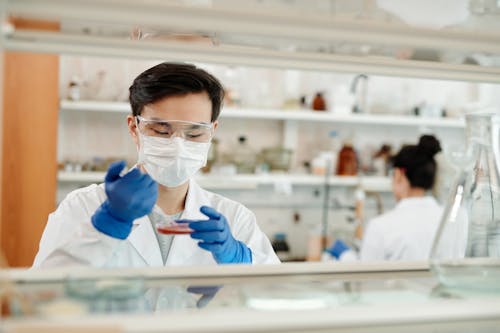Biotech Breakthroughs: Revolutionizing Health and Beyond
In today’s fast-paced world, biotechnology has become a cornerstone of innovation, revolutionizing various aspects of our lives. From healthcare to agriculture, and from environmental conservation to industrial processes, biotech breakthroughs are transforming the way we live, work, and interact with our environment. This article explores some of the most promising biotechnological advancements and their implications.
1. Introduction to Biotechnology
Biotechnology, often referred to as the “technology of life,” involves the manipulation of living organisms or their components to develop products and technologies that benefit humanity. It encompasses a wide range of disciplines, including genetics, molecular biology, biochemistry, and bioprocess engineering.
2. Precision Medicine: Tailoring Treatments to Individuals
One of the most significant advancements in healthcare is the emergence of precision medicine. By analyzing an individual’s genetic makeup, lifestyle, and environment, doctors can tailor treatments to meet their specific needs. This approach has led to more effective treatments with fewer side effects, particularly in the fields of oncology, cardiology, and neurology.
3. Gene Editing: CRISPR and Beyond
The development of CRISPR-Cas9 technology has revolutionized gene editing, allowing scientists to modify DNA with unprecedented precision. This breakthrough has the potential to cure genetic diseases, enhance crop resilience, and even combat climate change by engineering carbon-sequestering organisms.
4. Synthetic Biology: Designing Life from Scratch
Synthetic biology involves the design and construction of biological systems and organisms with novel functionalities. This field holds promise for producing biofuels, pharmaceuticals, and biomaterials in a sustainable and cost-effective manner. Synthetic biology is also driving innovations in the production of synthetic foods and the development of biosensors for environmental monitoring.
5. Biopharmaceuticals: Expanding Treatment Options
Biopharmaceuticals, such as monoclonal antibodies and recombinant proteins, are revolutionizing drug development and delivery. These molecules are produced using biotechnological processes, offering more targeted and potent therapies for a wide range of diseases, including cancer, autoimmune disorders, and infectious diseases.
6. Agricultural Biotechnology: Feeding the World Sustainably
In the face of global challenges such as population growth and climate change, agricultural biotechnology plays a crucial role in ensuring food security and sustainability. Genetically modified crops with enhanced yield, resistance to pests and diseases, and tolerance to abiotic stresses are helping farmers produce more food with fewer resources.
7. Environmental Biotechnology: Cleaning Up Our Planet
Environmental biotechnology leverages living organisms and biological processes to remediate polluted environments and mitigate the impacts of human activities on ecosystems. Applications include bioremediation of contaminated soil and water, biofiltration of air pollutants, and the production of biofuels from waste materials.
Read More: Rise of the Machines: Exploring Robotics and Automation
8. Biotechnology in Industry: Improving Processes and Products
Biotechnological innovations are transforming industrial processes across various sectors, including energy, textiles, and cosmetics. Enzymes and microorganisms are being used to produce bio-based chemicals, detergents, and biofuels, reducing reliance on fossil fuels and minimizing environmental impact.
9. Challenges and Ethical Considerations
While biotechnology holds immense promise, it also presents challenges and raises ethical concerns. Issues such as genetic privacy, biosecurity, and the equitable distribution of biotechnological benefits require careful consideration and regulation to ensure that these technologies are used responsibly and for the greater good.
10. Conclusion: The Future of Biotechnology
In conclusion, biotechnology is reshaping our world in profound ways, from improving healthcare and agriculture to addressing environmental challenges and enhancing industrial processes. As scientists continue to push the boundaries of what is possible, it is essential to foster collaboration, invest in research and development, and uphold ethical standards to realize the full potential of biotechnological innovation for the benefit of humanity and the planet.
Final Thoughts
Biotechnology is a field of boundless possibilities, where science fiction often becomes reality. As we move forward, it’s crucial to embrace these advancements responsibly, ensuring that they are used ethically and equitably for the betterment of society and the preservation of our planet. With continued innovation and collaboration, biotechnology will undoubtedly continue to revolutionize our world in ways we can only begin to imagine.







[…] Read More: Biotech Breakthroughs: Revolutionizing Health and Beyond […]